My Year of Bookish Wisdom: 2020
by Miles Raymer
My Year of Bookish Wisdom 2020: Superlatives on Strike!
You heard it here first: I am predicting that, in 2021, superlatives in every language around the world will join together in a globe-spanning strike. 2020 was just too much––they can’t take it anymore. “Worst” just collapsed from exhaustion and has been confined to quarters, “hardest” hit the road weeks ago and hasn’t called, and “saddest” was last spotted crawling into a hospital freezer to cling to a pack of COVID vaccines. Next year, we’re going to have to get by with regular old adjectives, because superlatives need a break.
But seriously, what’s left to say about this wretched year that hasn’t already been said? We’re all tired, we’re all bummed out, and we’re all hoping that somehow 2021 will be the year we turn this global shitshow around. We’re also, I would argue, all in need of a good book (or ten). So here are some titles that helped to make my 2020 more educational, entertaining, and bearable.
Nonfiction:
Coming out of a year that exacerbated the many sufferings of poor people, it’s more important than ever to recognize and fight against the scourge of poverty. Here in America, the poor have too long been ignored, marginalized, and denied opportunities. Chris Arnade’s Dignity tells the story of this bereft demographic, illuminating “back row America” with simple, straightforward writing and arresting photography.
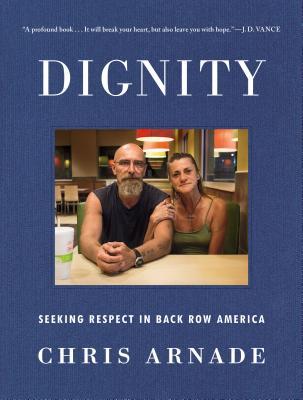
Spending time with this book is a great way to build compassion and fortify your resolve to fight for a country that supports the survival and flourishing of all its citizens.
Readers wondering why the American government hasn’t done more for the people featured in Arnade’s work can seek answers in Ezra Klein’s Why We’re Polarized.
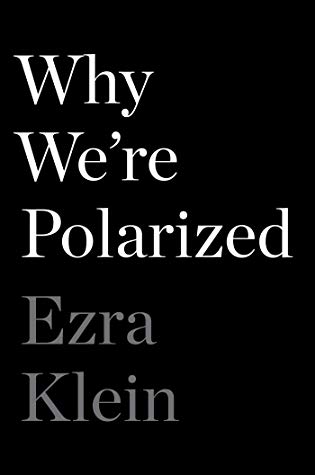
Klein’s rigorous, structural analysis of American political dysfunction is teeming with insights from history, policy, and common sense, and his suggestions for improving the situation are bold and surprising. As Klein’s first book, Why We’re Polarized also solidifies his position as one of America’s most influential and accomplished political pundits.
My absolute favorite work of nonfiction from 2020 was Scott Barry Kaufman’s Transcend.
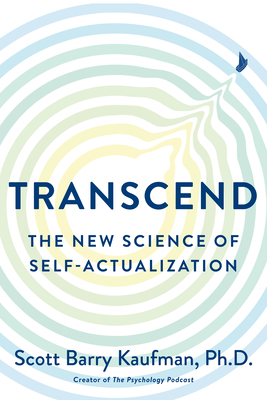
This detail-driven piece of scholarship is simultaneously a 21st-century reboot of humanistic psychology, an exceptional summary of the science of well-being, and a recasting of Abraham Maslow‘s “hierarchy of needs” using a wonderful sailboat metaphor:
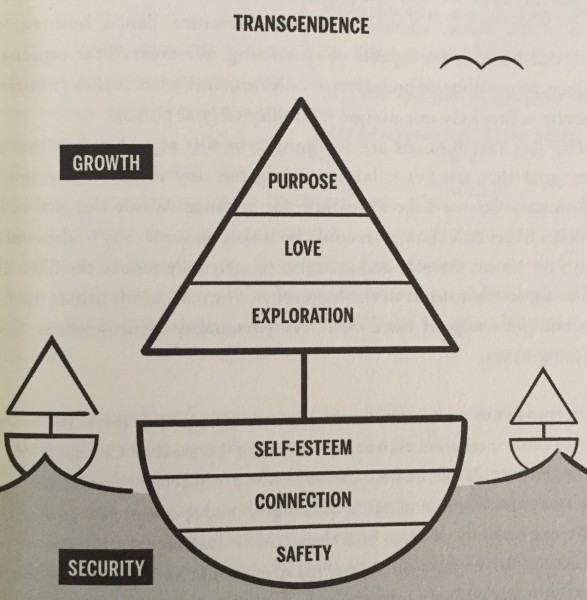
Kaufman’s concept of “healthy transcendence” was a major influence in my decision to pursue a new career in counseling. Here’s his definition:
Healthy transcendence is an emergent phenomenon resulting from the harmonious integration of one’s whole self in the service of cultivating a good society. This view of transcendence, which I believe is the healthiest form of transcendence, is not about leaving any parts of ourselves or anyone else behind or singularly rising above the rest of humanity. Healthy transcendence is not about being outside of the whole, or feeling superior to the whole, but being a harmonious part of the whole of human existence. It’s all of humanity. In a nutshell: healthy transcendence involves harnessing all that you are in the service of realizing the best version of yourself so you can help raise the bar for the whole of humanity. (218)
As part of preparing for graduate work in counseling, a mentor recommended Carl Rogers as one of the key historical figures in the development of modern psychotherapy. His book of essays On Becoming a Person provided what I hope is the start of a strong foundation in therapeutic theory.

Rogers’s three tenets of the therapeutic relationship––congruence, unconditional positive regard, and empathic understanding––are useful far beyond the counselor-client context. I’m now striving to identify and embody these qualities in my everyday life. It is incredibly difficult and I always come up short in one way or another, but the effort makes me a little better, and that’s what matters.
Tools for Growth:
I had no trouble identifying the first item for this section. Back in April, I started using an online note-taking tool called Roam Research.

This program uses bidirectional links to form novel connections within a database of verbal information. For two and a half weeks, I spent all my free time dumping nearly a decade of notes into this system, covering every book I’ve read since late 2011. I’ve continued to add new book notes and have also created some new note-taking habits throughout the year. Roam arrived just in time to help me prepare for and get through my graduate studies, which hopefully will commence next year. The software also helped me outline and write an essay on John Dewey’s Human Nature and Conduct that was published as a series by Science and Philosophy on Medium (links here: Introduction & Part 1, Parts 2 & 3, Part 4 and Conclusion). Finally, Roam allowed me to create a special Christmas gift for Ma––a “quote compendium” of more than 200 quotes that remind me of her. I called it:
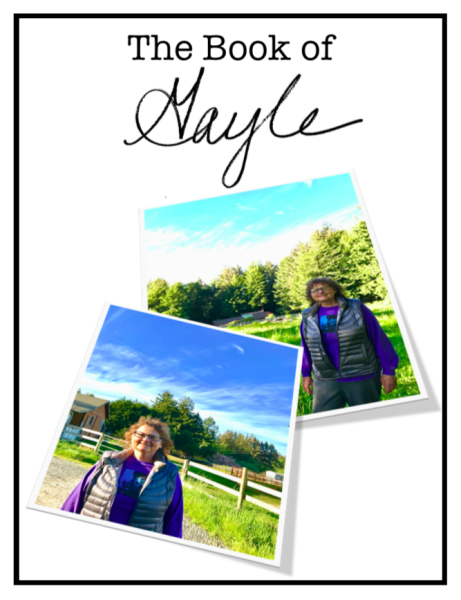
Cover designed by Adam Crug
2020 was also the year that I rediscovered walking. Whether walking with friends and family or just alone with my dog, this activity provided much needed exercise, reflection, and exposure to nature. I also started taking Albus on runs with me this fall, which has been great fun. He is a good partner and I’m sure could run much faster and farther than I ever will.
Another tool for growth and mental health management is listening to music (see this recent report from the Global Council on Brain Health for details). Listening to music recreationally is something I’ve always done, but this year we decided to buy a couple new Sonos speakers to improve our sound quality and make it easier to play music at home. My favorite albums of the year (in no particular order) were as follows:
- Purple Noon by Washed Out
- American Head by The Flaming Lips
- On Circles by Caspian
- Imagine Gold by Frameworks
Fiction:
Fiction has always provided a welcome distraction from real life, but in 2020 we all needed that even more than usual. When the pandemic began, I started searching for ways to connect my experience to the greater common lot––to humanity’s long and painful history with deadly disease. Albert Camus’s The Plague was the perfect fit.

This classic tale of an Algerian city that experiences outbreak of the Black Death during the 1940s helped clarify and deepen my feelings about the moment in which we are living. It also redoubled my gratitude for everyone who enters the medical profession, including my father, his fiancé, and one of my closest friends from my undergraduate years. Their heroism is wonderfully represented by the novel’s protagonist, Dr. Bernard Rieux, whose sober and steadfast reaction to the outbreak will impress even the most cynical reader:
These extravagant forebodings dwindled in the light of reason. True, the word “plague” had been uttered; true, at this very moment one or two victims were being seized and laid low by the disease. Still, that could stop, or be stopped. It was only a matter of lucidly recognizing what had to be recognized; of dispelling extraneous shadows and doing what needed to be done. Then the plague would come to an end, because it was unthinkable, or, rather, because one thought of it on misleading lines. If, as was most likely, it died out, all would be well. If not, one would know it anyhow for what it was and what steps should be taken for coping with and finally overcoming it.
The doctor opened the window, and at once the noises of the town grew louder. The brief, intermittent sibilance of a machine-saw came from a near-by workshop. Rieux pulled himself together. There lay certitude; there, in the daily round. All the rest hung on mere threads and trivial contingencies; you couldn’t waste your time on it. The thing was to do your job as it should be done. (39)
Heroism of the imagination is also a critical component of survival, and in that department Ada Palmer’s Terra Ignota series blew the competition out of the water.
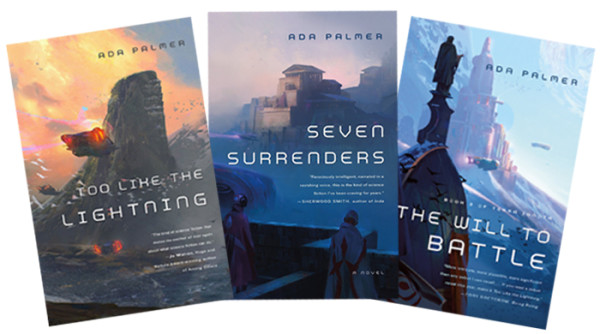
This still-unfinished, mid-future, genre-bending science fiction series is its own class of awesomeness. Its brilliance derives from the remarkable personality of Palmer herself, who is not only a history professor specializing in the Renaissance period, but also a polyglot and composer. Anyone looking for an engrossing, challenging, and mind-blowing series to get lost in this winter need look no further.
Finally, nothing quite does it for me like a short book brimming with understated elegance. After foolishly ignoring a strong recommendation from my wife and letting it linger on my bookshelf for a couple years, I finally picked up Lily Brooks-Dalton’s Good Morning, Midnight as the 2020 drew to a close.
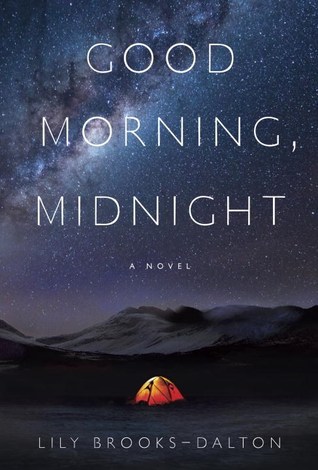
This book is…just beautiful, from start to finish. Each sentence and sentiment is a gleaming work of art, all stacking neatly to form a mournful but inspiring narrative about all the things that matter most in human life. This is a good year to be reminded that the end of humanity isn’t the end of everything, and not even the end of much at all when compared to the grand workings of the cosmos. Still, there’s a lot to love about our little, weird corner of existence; let’s keep trying to make it better in 2021.
As the year comes to a close, I want to say thank you Miles for the unending inspiration you offer me! You make me regularly interrogate my own tendency toward the way of the hermit, as you steadfastly, throughout time and in style, offer your own musings, wanderings, reflections, and doubts for all of us readers, fickle or dedicated. Deep bows to you! Happy 2021
Thanks Mark and so great to hear from you! I hope you are well and have found ways to learn and growth healthily during this strange and challenging time. I feel truly fortunate to have readers like you––people who inspire me to keep writing and sharing my thoughts and experiences. Wising you the best in 2021!
Nicely done. One day soon perhaps I’ll have time to read some of these, but in the meantime, keep those reviews and words of your own wisdom coming!
Will do and thanks as always for reading!
Hi! I just stumbled across your blog and love the content. Will definitely be checking out Transcend by Kaufman. Thanks for the recommendations!
Hi Rachel! Great to hear from you and thanks for reading! I’m really glad you’re enjoying my content. If you want to subscribe and get an email notification each time I post something new, you can do so here: https://tinyletter.com/words-and-dirt
Thanks again and take care!